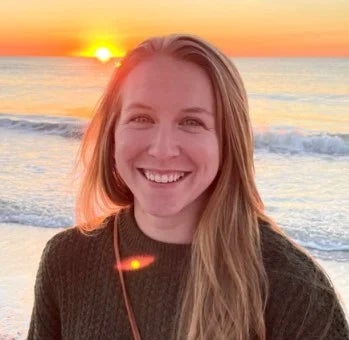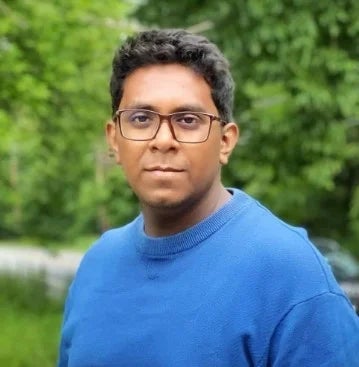KINGSTON, R.I., – April 22, 2024 – Three Ph.D. students at the University of Rhode Island have been recognized for their ability to communicate their research effectively to the public as part of URI’s inaugural Three Minute Thesis (3MT) competition. Each student who entered the competition was challenged to present the content and contributions of their research in a 3-minute “elevator pitch” that attempted to capture the attention of a non-specialist audience in a vivid, cogent, jargon-free style – without reverting to academic language – while relying on only a single static slide as a visual aid.
“An 80,000 word Ph.D. thesis would take 9 hours to present. Your time limit… 3 minutes” according to the University of Queensland, which founded the 3MT competition in 2008. 3MT is now replicated at over 900 universities around the world. “3MT cultivates students’ academic, presentation, and research communication skills, . . . and supports their capacity to effectively explain their research in 3 minutes, in a language appropriate to a non-specialist audience,” according to University of Queensland.

The finals of URI’s 3MT competition took place last month, in Lippitt Hall before an audience of nearly 100 spectators. Winners are: Sarah Davis, who is studying biological and environmental sciences; Md Abdullah Al Rumon, a student in electrical engineering; and Helani Singhapurage, who is studying physics.
“Graduate programs are the secret sauce that makes URI such a great place to study and work, and the Three Minute Thesis competition was an incredible opportunity to showcase the innovative work that our graduate students do every day,” said Professor of Chemistry and Graduate School Dean Brenton DeBoef.
Davis’ first-place presentation, “A Crab’s Eye View of the Plastic Pollution Crisis,” about the New England native Jonah crab, highlighted the urgent threat that pollution poses to ocean life.
According to Davis, the greatest threat to this species is the level of plastic pollution in the ocean. When the plastic refuse breaks down, becoming microplastics, ingesting these synthetic materials becomes unavoidable for ocean-floor scavengers like crustaceans.

Second-place winner Al Rumon, wrote his thesis on a device that would more efficiently monitor the vital signs of infants in neonatal intensive care units. His “smart belt” device is a “softer” non-invasive way to gather essential medical information from infants and newborns in delicate conditions.
Current standard equipment for taking vital signs in infant intensive care units is composed of equipment, including leads for monitors and tubes that are fastened directly to the baby’s skin, which has many drawbacks, says Rumon. Not only can the wires damage or irritate the skin of a newborn, causing bleeding and contact dermatitis, they can prevent the baby from moving freely, making it more difficult for mothers and nurses to hold them. Al Rumon’s belt design is simpler than what exists now for taking vital signs. An article on the $2.6 million grant awarded by the National Institutes of Health to al Rumon and the team developing this device was featured in Rhody Today on Oct. 19, 2023.

Singhapurage, was voted winner of the people’s choice award by the audience, for her research in the field of physics. Singhapurage’s thesis explores light refraction on the microscopic level, and compares the refractions of different kinds of light on different materials by measuring the vibrations emitted.
Studies of this sort have been conducted before, but Singhapurage’s methods of light and vibration measurement allowed her to discern minute variations in the emitted frequencies that speak to the chemical differences of the material, and perceived differences in its color.
“Analyzing scattered light from Raman active vibrations of materials provides vital information,” Singhapurage said. “Ultimately, findings of my research will help to develop more efficient semiconductors and high-powered lasers.”
DeBoef, who judged the event, along with Jen Riley, dean of the College of Arts and Sciences; Vinka Oyanedel-Craver, professor and associate dean of research in the College of Engineering; and Christopher Lavan, associate vice provost for the advancement of teaching and learning, called the event a resounding success.
You can view the presentations of all the winners and see the list of the 10 finalists HERE
This story was written by Samantha Melia, a senior journalism and political science major at the University of Rhode Island and an intern in the Department of Marketing and Communications.
